#global shipping company
Text
What is the difference between FOB and CIF?
International Shipping Logistics Company in UAE
https://e-ship.sg/assets/img/blog/what-is-the-difference-between-fob-and-cif.jpg
Whether you're selling or buying goods, understanding the different types of shipping contracts-like FOB and CIF-will help you better understand your responsibilities throughout a transaction. This in turn will help you reduce risk and lead to a smoother supply chain. So what is the difference between FOB and CIF? And how does it affect the import and export process?
Free on board (FOB) and cost, insurance, and freight (CIF) are two important rules governing domestic and international trade. These contracts determine ownership and liability from the port of origin to the destination. FOB and CIF are both Incoterms-rules for cargo transport that the International Chamber of
Commerce maintains. Incoterms determine each party's duties and dictate the transfer of ownership during a transaction.
It is vital that companies shipping or receiving goods internationally understand the important implications FOB and CIF have on shipping costs and risks.
FOB: Giving control to the buyer
The FOB Incoterm places most of the responsibility for shipping on the buyer. The seller hands off the goods to the buyer's carrier service at the port. Once the goods cross the ship's rail onto the deck, the supplier's arrangements have ended.
All further responsibilities for freight logistics and unloading belong to the buyer. After the seller delivers the goods onto the vessel at the port of origin, the buyer's chosen carrier transports the goods to the destination.
Buyer Responsibilities:
In FOB, the buyer is responsible for the following:
Paying the freight costs
Paying import duties and clearing customs
Unloading at the destination
When shipping FOB, the seller does not have to pay import duties or manage customs documents for import.
Types of FOB terms:
While FOB makes the buyer responsible for most shipping arrangements after the port of origin, the party that bears the risk for the goods depends on the specific type of FOB terms. There are two types of FOB contracts that determine ownership and liability for products in International Shipments.
FOB DESTINATION:
In FOB destination terms, the seller or exporter remains responsible for the safety of the cargo while it is in transport. Due to this liability, a seller might wish to purchase insurance on the goods. This is similar to CIF terms; however, CIF carries added costs and insurance requirements for the seller.
FOB ORIGIN:
In FOB origin (also known as FOB shipping point), the supplier officially completes the sale by transferring the cargo to its shipping carrier. The buyer becomes responsible for all liability as soon as the goods reach the carrier at the port of origin.
Insurance for FOB:
Neither FOB destination nor FOB origin requires the seller or the buyer to provide Freight Insurance. However, insurance helps reduce the cost of potential damages or losses during water transport.
When shipping FOB destination, the seller should consider purchasing insurance to cover potential losses. When shipping FOB origin, the buyer should consider purchasing insurance for their goods during shipping.
Whether you choose destination or origin depends on the specifics of the transaction and the risk you’re willing to accept. A third-party logistics provider like Dubai Freight Forwarders offers a range of supply chain solutions to manage origin facilities, forecast freight costs, and optimize transportation.
CIF: Giving control to the seller
The CIF Incoterm places the responsibility for paying most shipping expenses on the seller.
Responsibilities for CIF:
When shipping with CIF terms, the seller holds responsibility for the following:
Shipping the goods to the destination port
Paying the freight costs
Paying for cargo insurance
Under a CIF contract, the buyer chooses the port where the seller must deliver the goods. The seller pays for all freight expenses to deliver the shipment to that port. Because the seller must manage the freight and delivery, CIF terms always include a port of destination.
Insurance for CIF:
CIF is one of only two Incoterms that mandate that one party (the seller) provides cargo insurance throughout the shipment’s journey to its port of destination.
Choosing between FOB and CIF:
Companies buying and selling internationally should weigh the benefits of FOB versus CIF before choosing either option. For your company, the right choice comes down to the specific circumstances of the transaction, your shipping experience, and your preference for responsibility.
When to choose FOB over CIF:
Buying FOB requires the buyer to bear much more responsibility for the shipping and delivery of the cargo. However, this can be an advantage. Because FOB transfers the freight responsibility to the buyer, the buyer has an opportunity to search for better freight rates. If you’re purchasing goods, you’ll be able to choose your preferred (and trusted) freight forwarder.
As a buyer, you could also have better access to tracking information for the shipment using FOB. For example, e-Ship offers companies access to real-time data through a supply chain control tower. Finally, by choosing a trusted logistics partner, you can gain better support for your FOB shipments.
When to choose CIF over FOB:
New buyers or importers sometimes choose CIF when purchasing international goods because it reduces the need for logistics management on their end. Since the seller handles loading and freight, the buyer simply has to arrange pickup. This can be an optimal arrangement for inexperienced importers who aren't yet familiar with International Shipping.
However, this usually also leads to higher costs for the buyer because the exporter can choose shipping rates. For example, the seller might increase their margins on the products to cover the costs.
Generally, it's wise to choose FOB if you're buying international goods
#International shipping company in UAE#global shipping company#dubai freight forwarders#cargo shipping company#freight management in uae#logistics company in uae#international logistics companies in dubai#lcl container shipping#cargo shipping companies near me#cargo and freight insurance
0 notes
Text
Economic Bounce Back & Busy Trade Lanes
New Kids on the Block: Emerging Trade Routes Geopolitical Musical Chairs: The world map of trade is getting a fresh paint job. Thanks to some geopolitical shuffle, places like Canada, America and India are turning into hotspots for trade. This shake-up is making freight companies rethink their game plans and routes.
Digital Swagger: The Freight Forwarding Tech Revolution
With the economic landscape shifting, freight forwarders are all over digital tools. These tech solutions are game-changers, making operations smoother, adapting to market swings, and boosting customer satisfaction.
Gone are the days of paper overload and headaches over manual tracking. Now, it’s all about slick, all-in-one systems that offer live tracking, automated paperwork, and smart analytics to keep businesses on their toes.
Green is the New Black: Eco-Friendly Shipping
Eco Push: Everyone’s riding the green wave, and the shipping industry is no exception. Thanks to both carrot and stick approaches (think incentives and tough rules), shipping companies are moving towards cleaner, greener options like eco-friendly vessels and alternative fuels.
Rise of the Underdogs & Decentralization
The global economy is less about the usual heavyweights and more about rising stars like Vietnam and India, reshaping the freight demand and flow. Plus, tech is levelling the playing field, enabling smaller companies to duke it out with the big dogs by offering top-notch service and efficiency.
Setting Sail: The Shift to Ocean Freight & Tech Tools
With folks leaning into environmental concerns and wallet-friendly options, ocean freight is getting more attention. This has spiked the demand for ocean-specific freight software that makes maritime shipping smarter and smoother.
AI on Board: Smarter Ocean Freight
Ocean freight’s getting a brain boost with AI. Think of AI as the new captain, helping predict delays, navigate the weather, and even cut down on fuel use. This isn’t just about keeping shipments on track; it’s about making them smarter and more cost-effective.
Better Together: Enhanced Collaboration Through Digital Platforms
In today’s global village, smooth teamwork across borders is key. Modern freight systems are making it easier for everyone involved in shipping to stay on the same page. By sharing info and syncing up, these digital platforms are knitting a tight-knit shipping community.
Tailor-Made Tech: Custom Freight Solutions
Just like no two people are the same, businesses have unique shipping needs. Enter custom freight platforms, offering services you can mix and match to fit your specific needs, from picking the best routes to managing your stockpile.
Economic Guard Dogs: Navigating Protectionism
Some places are throwing up trade barriers to protect their turf, which can be a headache for the freight world. The antidote? Smart freight platforms that can weave through these regulatory mazes.
E-commerce Explosion & the Last-Mile Hustle
The e-commerce boom is reshaping retail, cranking up the pressure for quicker, slicker last-mile deliveries. Freight systems that can click with e-commerce setups and give live updates are winning big.
Flexibility & Resilience: More Than Buzzwords
The twists and turns of 2024’s economic rollercoaster highlight just how crucial it is for freight companies to stay nimble and resilient. Those ready to leverage tech, green up their act, and keep a global perspective are set to ride high.
So, there you have it: 2024’s freight forwarding landscape in a nutshell. It’s all about being tech-savvy, eco-conscious, and ready to adapt to the global beat. With the right tools and attitude, the future looks bright for the freight world.
#global used clothing shipping#used clothing logistics#logistics solutions for metal scrap#transport services for mining & minerals industry#scrap metal shipping company#freight forwarder mississauga#mining logistics companies#International freight forwarding industry#heavy machinery shipping#International freight forwarders Canada#global freight solutions#international logistic services#global shipping company#logistics company in canada#car parts shipping#heavy machinery transportation#Trucking Heavy Haul Services#ocean freight forwarders#sea freight forwarder#ocean frieght services#lcl freight canada#fcl freight canada#LCL Shipping Canada#Warehosing & Distribution services#wholesale and retail distribution
1 note
·
View note
Text
instagram
Follow our Instagram page for the latest updates regarding Global logistics solutions.
An American New Logistics company specializes in door-to-door international logistics visit here https://www.americannewlogistic.com/.
click here on American New Logistics for more information.
0 notes
Text

Mayday from the Dali. 🚢 ⚡️🌉🆘🛟🟧🟨🟦🟥
#Baltimore#baltimore maryland#baltimore md#Baltimore bridge#dali#global shipping#shipping container#shipping company#tugboat#pop art#folk art#Francis Scott key#oil and gas#world news#childrens book illustration#construction crew#mayday#sos#big boat#ships#patapsco River#patapsco#cargo ship#super tanker#street art#Francis Scott key bridge#bridge collapse#suspension bridge#contemporary art#basquiat
2 notes
·
View notes
Text
Coming up with billions of random unimportant details about my DND character. Like why do i know this about him. Almost like a stalker, i didn't need to know what color his underpants are, so why did i look?
#I've determined the specific circumstances in the global (?) animal community that led to his naming#and his naming itself is an incredibly unimportant detail used to justify giving him the stupidest name ever#i stg if i put this man in a coffee shop I'd be trying to figure out how the coffee company shipped the beans for his cortado#DND blorbo posts
3 notes
·
View notes
Text
The Backbone of Supply Chains: Project Management in Warehousing and Logistics
As global trade changes constantly, it's important that warehousing and logistics work together smoothly to keep supply lines running smoothly. At Xpress Logistics, we know how important project management is for making these important tasks run more smoothly.
This piece goes into detail about how Xpress Logistics leads the way in new project management techniques that improve warehousing and logistics operations. They do this by meeting a wide range of needs, from Warehousing and Storage to Distribution Services.
How to Understand the Nexus: Warehousing and Logistics
Warehousing and logistics are two parts of the supply chain environment that work hand-in-hand and depend on each other to run smoothly. Warehouses are where goods are kept, handled, and made ready to be sent out to customers. Logistics, on the other hand, is the complex web of transportation, warehouse management, and fulfillment processes that make sure packages get delivered on time.
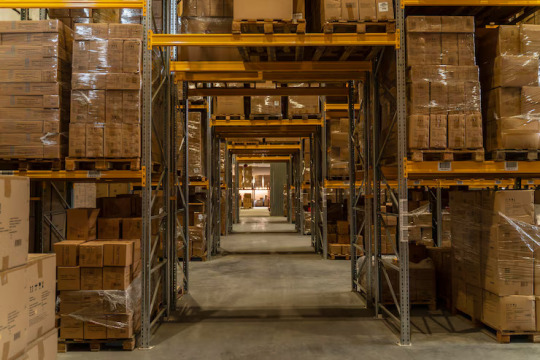
The Xpress Method: Great Project Management
At Xpress Logistics, project management is not just a job; it's a way of life that's built into the company. Our skilled project managers know how to coordinate complicated transportation and storage projects, making sure that everything runs smoothly from the beginning to the end.
How to Make Warehouse and Storage Work Better
Warehousing and storage must be done efficiently to accurately track goods, cut costs, and meet customer needs. Xpress Logistics uses advanced project management methods to maximize warehouse space, simplify inventory management, and establish strong storage solutions that meet the needs of a wide range of products.
Improving Distribution Services
Distribution services are the key to an efficient supply chain because they make it easy for things to get from warehouses to customers quickly. Xpress Logistics makes sure that customers are happy at every touchpoint by carefully planning and carrying out projects. They do this by optimizing distribution networks, reducing transit times, and improving delivery dependability.
Global Reach and Local Knowledge
As a well-known global shipping Provider company, Xpress Delivery uses its large network and local knowledge to provide custom delivery solutions all over the world. Our skilled project managers handle a wide range of regulatory environments and logistical difficulties, making sure that transportation and distribution go smoothly from start to finish, from Dubai to places all over the world.

Working together with logistics companies Dubai to achieve success
In Dubai, a busy city, Xpress Shipping works closely with other top shipping companies to improve the efficiency of the supply chain and help businesses grow. We use the combined knowledge of our partners and strategic relationships to come up with new project management solutions that go above and beyond the industry norms.
The forefront of innovation
In a time of rapid technological progress and digital transformation, Xpress Logistics is still at the forefront of new ideas in logistics and storage. We use cutting-edge technologies, like AI, to help us optimize our inventory and IoT and track our assets, which lets us provide unmatched efficiency and insight across the supply chain.
Supply Chain Excellence Redefined in the Final Section
Xpress Logistics is a great example of how project management, warehousing, and transportation skills can work together. We improve supply chain performance by carefully planning, executing, and coming up with new ideas. As the backbone of supply lines, our dedication to excellence never wavers. It helps businesses do better in a constantly changing market. Choose Xpress Transportation for project management, warehousing, and transportation services that can't be beaten. You'll see the difference for yourself.
#logistics companies in dubai#Global Shipping Provider#project management#warehousing and logistics#Warehousing and Storage
0 notes
Text
So apparently KOSA (2024 edition) is getting either thrown out until next year or put into effect in six days. That was a guesstimate based on a different person saying that's when Congress is back in session and may be false.
Update that's going in the main post at the top: it has enough support to pass Congress.
It failed the last two times because people were voting against it.
This time, KOSA has traction among the pro-LGBTQ parties. Because nobody is fucking calling their bullshit and screaming from the rooftops that calling it the "Kids Online Safety Act" is misleading.
What will it passing do?
Nothing much, only prevent any education on LGBTQIA+ (it's that stupid fucking argument about us grooming kids again), shut down nearly every fandom space on the internet, and make it required for most big tech companies to have your ID.
Want to have resources for kids to discover their identity readily available? Yes? Then fucking speak up against this stupid fucking bill.
Fandom spaces like Tumblr, Twitter (? I thought the MAGA assholes liked Musk?), Tiktok, Archive Of Our Own, and any other website that hosts fanfic or fanart? Either shut down permanently, forced to uproot to a different country and down for a while (best case scenario, and they likely won't be able to send any data, and therefore fanfics, to the US), or gutted so that you only get to put G rated cishet ships on there, if any shipping at all. How to avoid that? I've already said it: Call your fucking representatives.
Want to avoid the fucking dystopic task of being legally obligated to give big tech your government issue ID? Again, cause an uproar. Call your goddamned representatives.
If they can pass this, the ripple effects could be catastrophic.
So, for fuck's sake, any Americans that can impact this stupid fucking bill and see this? Do everything in your power to shut it down because you have until February twenty sixth (26th) to send this bill back to where it belongs.
And if you can't do that? Reblog, copy my tags, and boost the signal.
Sorry not sorry for ranting, making you scroll through that, and swearing a probably excessive amount, but KOSA is a bill with a GLOBAL IMPACT being passed by ONE COUNTRY because some old people are scared of two guys with who were told they were girls kissing within five hundred miles of a child. Fuck this shit, I shouldn't have to worry about bad bills in America but I fucking do because I use the internet and would like to avoid mass censorship. Fuck this, fuck conservatives, and fuck the fact that some boomers make your country's policies.
Now, if you won't mind me, I'm going to be up until three in the morning downloading fanfiction or copying and pasting them into a a text file if I can't so I can read them by the end of the week.
#kids online safety act#media preservation#kosa#kosa bill#ao3#archive of our own#tumblr#tumblr meta#fandom psa#fandom spaces#fandom#important#psa#bad internet bills#twitter#internet censorship#internet#very important post#anti censorship#anti conservative#signal boost#fanfic#fanfiction#<- these tags are relevant because they will be lost for god knows how long if this stupid bill passes#stop kosa#stop kids online safety act#tiktok#i don't like that one but censorship is censorship dammit and it's on the list
15K notes
·
View notes
Text
Connecting Countries: Mumbai's Significant Role in International Business
India's importance in global trade cannot be undervalued because its increasing GDP and unique location make it a good competitor worldwide. Air freight forwarders in Mumbai and global logistics service providers also play an important role in making the transportation of goods easy between other countries and India by connecting businesses to international markets.
Mumbai's Strategic Location
Mumbai is located on India's west coast, which always gets benefits because of its central position as a major shipping hub and an important entrance point for worldwide trade. Also, because of its closeness to important transportation routes, it is a popular choice between global logistics service providers and air freight forwarders in Mumbai.
Mumbai is well-connected to a powerful transportation system consisting of highways, railroads, and airlines, allowing for easy product transfer. This link improves global supply chain services like customs clearance and allows smooth transport of goods between India and other countries.
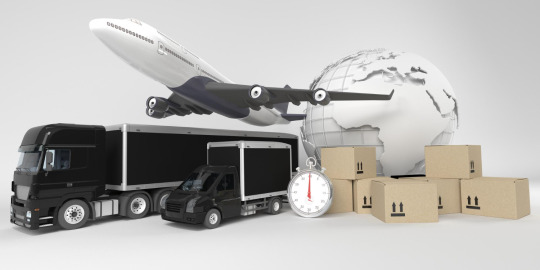
Mumbai is the primary center in India's transportation network, connecting Western and Southern India to international markets. Its solid foundation and unique location make it an important center for freight forwarding from India.
Port infrastructure in Mumbai
Mumbai has large ports such as Nhava Sheva (JNPT) and Mumbai Port Trust, which allow easy freight forwarding operations between foreign countries and India. These ports are essential locations for international logistics services, connecting air freight forwarders in Mumbai to global markets and ensuring fast customs clearance services.
Mumbai's port's primary aim is to improve productivity and capacity to handle the increasing demand. This includes improving infrastructure, increasing connectivity, and applying modern technologies to simplify freight forwarding to India.
Port development programs are having a major effect on global freight forwarding operations, resulting in easier transportation of goods and faster delivery times.
Challenges and opportunities
Despite these changes, Mumbai still needs to overcome infrastructure limitations, which reduce the performance of air freight forwarders in Mumbai and worldwide logistics services companies.
Understanding the laws and customs clearing services creates difficulties for international logistics services, restricting smooth freight forwarding between other countries and India.
Despite the problems, Mumbai's freight forwarding company provides many opportunities for growth and innovation due to the demand for fast international logistics services and effortless freight forwarding services.
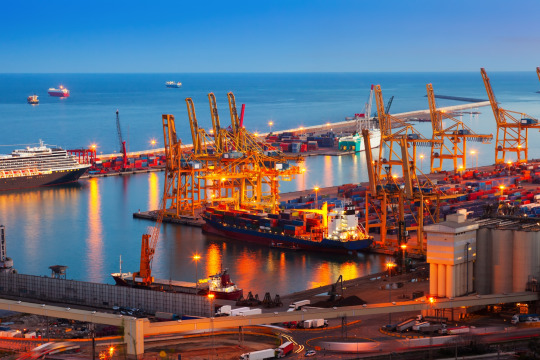
Mumbai's Contribution to Global Supply Chains
Mumbai's advantageous location and effective air freight forwarders make it an important hub for international transportation. Case studies show how Mumbai improves customs-clearing processes and allows for successful shipping between and within India.
Collaborations between Indian and global transportation companies use Mumbai's infrastructure to enhance global delivery services; hence, it increases global access.
Mumbai's long supply chain improves the competitiveness of Indian exporters in global markets by providing stable freight forwarding services and easy international connections.
Conclusion
Effective freight forwarding, operated by air freight forwarders in Mumbai and a global logistics services company, is important for India's growing economy and global integration. Its fast customs clearing services allow easy freight forwarding between foreign countries and India, supporting business and improving international connections.
#shipping and freight forwarder#customs clearance#air freight forwarder#freight forwarding services#warehousing#logistics company#global logistic service provider#custom clearance#freight forwarding
0 notes
Text
Top Air and Ocean Freight Shipping Companies Revealed
Explore the world of international shipping with insights into leading air and ocean freight companies. Uncover the efficiency of air freight forwarding services and the reliability of international ocean freight delivery. This content provides a comprehensive guide to choosing the best ocean freight companies for your shipping needs. Whether you're seeking swift air freight solutions or trustworthy ocean freight international delivery services, discover the key players in the industry. Elevate your shipping experience with insights into the top names that ensure seamless and reliable logistics.
#air freight shipping companies#international ocean freight shipping companies#air freight forwarding companies#ocean freight international delivery service#best ocean freight companies#air and ocean freight forwarding#logistics and transportation companies#global cargo logistics tracking#transportation & logistics service providers#logistics service provider#international air freight shipping companies#international cargo delivery service#global cargo delivery company#air freight shipping service
0 notes
Text
Charting a New Course: The Emergence of Digital Freight Forwarding
Digital Freight Forwarding Companies in Dubai
https://e-ship.sg/assets/img/blog/charting-a-new-course-the-emergence-of-digital-freight-forwarding.jpg
In the ever-evolving landscape of global trade, freight forwarding plays a pivotal role in ensuring the smooth movement of goods across borders. Traditionally, this industry has been characterized by paperwork, phone calls, and manual processes. However, the digital revolution is reshaping the way freight forwarding operates, ushering in a new era of efficiency, transparency, and innovation.
Embracing Digital Transformation
Digital freight forwarding platforms are revolutionizing the industry by
leveraging technology to streamline processes and enhance customer experience. These platforms offer a one-stop solution for businesses to book shipments, track cargo in real time, manage documentation, and handle customs clearance—all from the convenience of a computer or mobile device.
Efficiency Redefined
One of the most significant advantages of digital freight forwarding is its ability to streamline operations and eliminate inefficiencies. With automated processes and centralized data management, tasks that once took days can now be completed in a matter of minutes. This not only saves time but also reduces the risk of errors and delays, allowing businesses to meet tight deadlines and improve overall supply chain efficiency.
Transparency and Visibility
Transparency has long been a challenge in the freight forwarding industry, with hidden costs and opaque pricing structures causing frustration for many businesses. Digital freight forwarding platforms address this issue by providing transparent pricing and real-time visibility into shipment status. Customers can access detailed breakdowns of costs, track their cargo every step of the way, and receive instant updates on any changes or delays.
Global Reach, Local Expertise
Despite the rise of digitalization, the importance of local expertise cannot be overstated in the freight forwarding industry. Digital platforms combine the global reach of modern technology with the local knowledge and expertise of experienced logistics professionals. This unique combination allows businesses to navigate complex international trade regulations, overcome logistical challenges, and optimize their supply chain for maximum efficiency and cost-effectiveness.
The Future of Freight Forwarding
As we look to the future, the role of digital freight forwarding will only continue to grow. Advancements in technologies such as artificial intelligence, blockchain, and the Internet of Things (IoT) are poised to further revolutionize the industry, offering even greater efficiency, security, and visibility.
In conclusion, digital freight forwarding represents a paradigm shift in the way businesses manage their logistics operations. By embracing technology, businesses can unlock new levels of efficiency, transparency, and agility, enabling them to thrive in an increasingly competitive global marketplace. The future of freight forwarding is digital, and the time to embrace this transformation is now.
#Freight Forwarders in UAE#Digital Freight Forwarding Company#Logistics Companies in Dubai#Logistics and Shipping Company#Dubai Freight Forwarders#Cargo Shipping#Global Shipping Logistics#Less than container load#International cargo shipping#logistics company near me#logistics and services#ocean freight shipping company#Supply Chain Management in UAE
0 notes
Text
Navigating Through 2023’s Top Freight Forwarding Challenges with Global Freight Forwarding Canada
The international freight forwarding industry is constantly evolving, facing new challenges each year that test the resilience and adaptability of its players. As we venture further into 2023, companies like Global Freight Forwarding Canada (GFFCA) are at the forefront, strategically positioned in Mississauga, a crucial logistics hub, ensuring the seamless flow of goods in and out of the country. Today, we’ll dive into the top challenges that freight forwarders are currently facing and share insights, discuss strategies to navigate these complexities successfully and ensure that your LTL & FTL Trucking services in Canada and beyond remain unhampered.
Challenge: Adapting to Increasing Digitalization Digital transformation is sweeping through the freight industry, with expectations for transparency, real-time tracking, and seamless online interactions.
Solution: Embrace Technology Investing in digital infrastructure is no longer optional. To stay ahead, freight forwarders must incorporate advanced tracking systems, online booking platforms, and customer service chatbots to enhance efficiency and customer satisfaction.
Challenge: Environmental Regulations and Sustainability The pressing need for sustainability is leading to stricter environmental regulations that impact how freight is moved globally.
Solution: Sustainable Practices and Partnerships It’s crucial for companies to adopt eco-friendly practices, such as optimizing route planning to reduce fuel consumption or choosing carriers that use alternative fuels. Partnering with green initiatives can also bolster a company’s environmental profile.
Solution: Sustainable Practices and Partnerships It’s crucial for companies to adopt eco-friendly practices, such as optimizing route planning to reduce fuel consumption or choosing carriers that use alternative fuels. Partnering with green initiatives can also bolster a company’s environmental profile.
Challenge: Escalating Costs and Margin Pressures The freight forwarding industry is witnessing escalating costs due to various factors, including increased demand and higher operational expenses.
Solution: Cost-effective Strategies and Value-added Services To combat rising costs, freight forwarders can optimize operational efficiencies and offer value-added services. Exploring cost-effective LTL & FTL Trucking services across Canada can provide competitive pricing without compromising service quality.
Challenge: With an upsurge in e-commerce and a rebounding global economy, capacity issues have become a pressing concern. Rate fluctuations further complicate the scene, posing a problem for freight forwarders in maintaining service consistency.
Solution: GFFCA addresses this by offering diverse global freight solutions, securing space with carriers well in advance, and employing predictive analytics to stay ahead of rate changes. Partnering with a well-networked freight forwarder in Mississauga like GFFCA can leverage local expertise and global connections to mitigate these challenges.
Challenge: Keeping up with technological advancements and integrating them into the logistics process can be overwhelming, yet it is essential for staying competitive.
Solution: Embracing technology is non-negotiable, and at GFFC, we utilize state-of-the-art tracking, AI for logistics planning, and automated systems to streamline operations. This ensures real-time visibility and efficiency, setting the standard for international freight forwarding services.
As we tackle the complexities of 2023, partnering with a strategic player like Global Freight Forwarding Canada becomes invaluable. Whether it’s leveraging local expertise in Mississauga for your freight forwarding needs, or navigating the broader challenges of the international freight forwarding industry,GFFCA’s solutions meet the evolving demands of the market. Companies like Golden Freight Forwarding & Marketing Inc with their expertise in LTL & FTL Trucking services across Canada, are well-positioned to lead the charge in overcoming these challenges and setting a benchmark for resilience and adaptability in the international freight forwarding arena.
For detailed insights into how we can tailor our services to meet your unique needs, visit our website at GFFCA.com. Together, let’s redefine logistics excellence.
#global freight solutions#freight shipping company#international logistic services#global shipping company#international freight forwarder#International freight forwarders Canada#freight forwarders near me#freight international services#freight forwarder mississauga#Logistics Company#Cargo Logistics#LTL & FTL Trucking#logistics company in canada#freight forwarding solutions#freight forwarding company#LTL & FTL Trucking services canada#cargo logistics canada#Warehosing & Distribution services
0 notes
Text
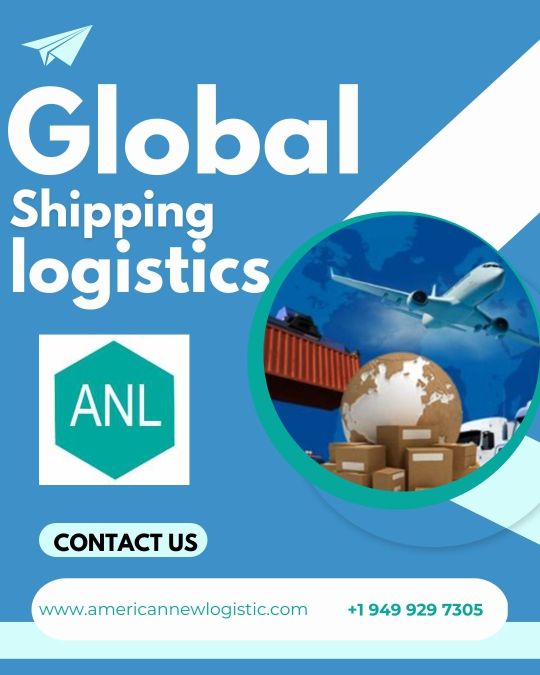
0 notes
Text

The oil tanker. Oops. 🚢⛽️💲⚫️🔥🌍💵💰
#oil production#oil pipelines#oil and gas companies#oil rig#oil prices#oil barrel#oil#diesel#diesel power#container shipping#shipping content#shipping#shipping worldwide#shipping container#oil spill#climate action now#climate action#climate change#global warming#naive art#saudi aramco#aramco oil distribution centre#aramco#opec news#opec#nasdaq#stocks to watch#stock market#wall street#us dollar
3 notes
·
View notes
Text
The Evolution Of Supply Chain Management
Supply Chain Management (SCM) is a critical aspect of modern business operations that encompasses the planning, coordination, and execution of activities involved in the flow of goods and services from the point of origin to the final consumer. It involves the management of various interconnected processes, including sourcing, procurement, manufacturing, logistics, inventory management, and distribution
#Cargo365Cloud#logistics software#logistic company in India#global logistics#Shipping Services#freight forwarding company#supply chain software
0 notes
Text
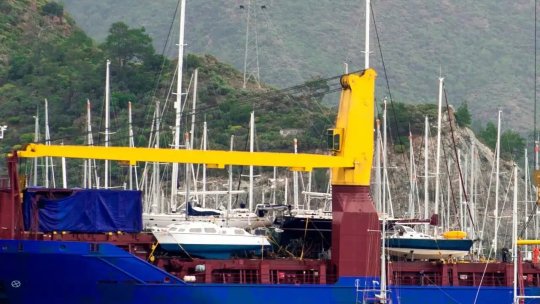
Yacht Shipping
Sail confidently with our specialized yacht shipping services, ensuring the secure and timely transport of your vessel across oceans!
#https://crosschartering.com/yacht-transport-ship-yacht-anytime-anywhere/#Yacht transport#Ship yacht#Yacht shipping#Boat transport#International yacht transport#Yacht delivery#Yacht shipping company#Global yacht transport#Yacht logistics#Yacht transport services#Boat shipping#Yacht shipping cost#Professional yacht transport#Yacht shipping worldwide#Luxury yacht transport#Cross-border yacht transport#Yacht transport solutions#Reliable yacht shipping#Yacht relocation
0 notes
Text
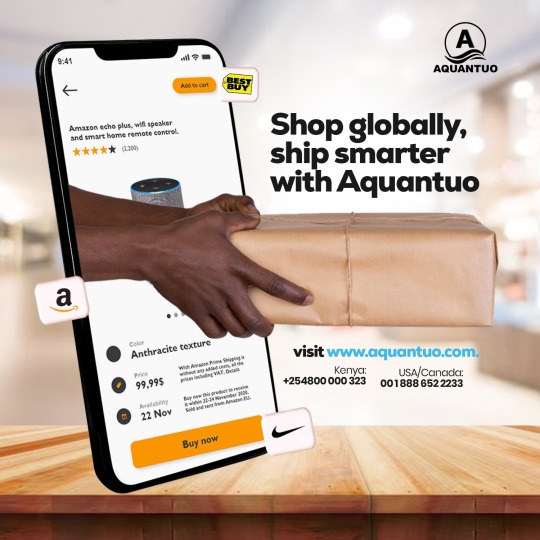
Global Retail, Smarter Shipping: Navigate the World of Savings with Aquantuo.
Discover a world of seamless global retail at Aquantuo—where Global Retail, Smarter Shipping: Navigate the World of Savings unfolds. Dive into an array of international treasures, coupled with intelligent shipping solutions. Experience savings and convenience like never before. Explore now at https://aquantuo.com/ and redefine your global shopping journey.
#international shipping companies in kenya#parcel delivery services in kenya#parcel services in kenya#carrier services in kenya#concierge service company kenya#concierge global services kenya#concierge travel agency kenya
0 notes